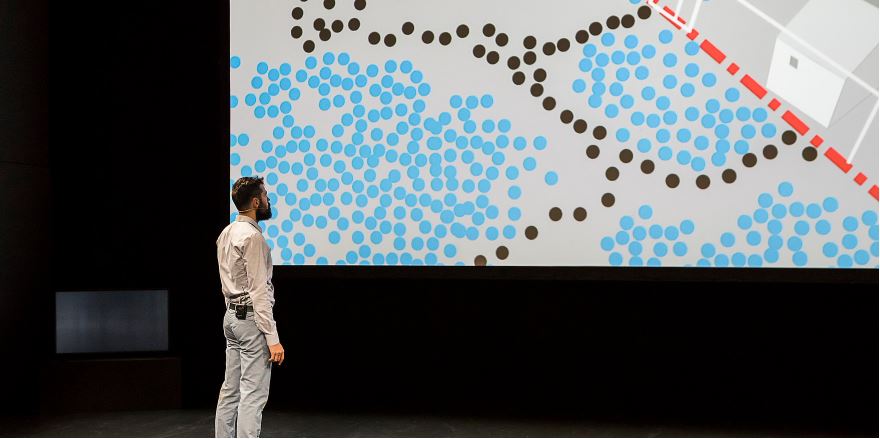Lo straniamento e la Thing Theory
L'oggettualità come antilogica di dissenso
Abstract
La pratica dello straniamento conserva un’imprescindibile funzione politica. È possibile legare tale formula narrativa ai percorsi indagativi propri della Thing Theory: in tal modo la prospettiva garantita dalla materia può far luce sulle coordinate ideologiche proprie della logica capitalistica, attraverso una rilettura della merce in chiave dissidente secondo il suggerimento offerto da Francesco Orlando in merito alla sua teoria freudiana. Questo contributo mira perciò a documentare il connubio tra l’intuizione di Šklovskij, la Thing Theory e la proposta di Orlando attraverso una lettura ravvicinata di "Solid Object", racconto di Virginia Woolf.
Downloads
Riferimenti bibliografici
Bodei, Remo, La vita delle cose, Roma-Bari, Laterza, 2011.
Boym, Svetlana, “Poetics and Politics of Estrangement: Victor Shklovsky and Hannah Arendt”, Poetics Today, 26.4 (2005): 581-611.
Brown, Bill, A Sense of Things. The Object Matter of American Literature, Chicago, University of Chicago Press, 2003.
Brown, Bill (ed.), Things, Chicago, University of Chicago Press, 2004.
Brown, Bill, Other Things, Chicago, University of Chicago Press, 2015.
Ceserani, Remo, Il fantastico, Bologna, Il Mulino, 1996.
Compagnon, Antoine, Le démon de le théorie. Littérature et sens commun (1998), trad. it. Il demone della teoria. Letteratura e senso comune, Torino, Einaudi, 2000.
De Cristofaro, Francesco Viscardi, Marco (eds.), Il borghese fa il mondo. Quindici accoppiamenti giudiziosi, Roma, Donzelli Editore, 2017.
Freud, Sigmund, Das Unheimliche (1919), trad. it. “Il perturbante”, in Id., Saggi sull’arte, la letteratura e il linguaggio, Torino, Bollati Boringhieri, 2018: 267-311.
Fusillo, Massimo, Feticci, Bologna, il Mulino, 2012.
Kafka, Franz, Ein Landarzt (1919), trad. it., Un medico di campagna, Firenze, Passigli, 2017.
Matte Blanco, Ignacio, The Unconscious as Infine Sets. An Essay in Bi-Logic (1975), trad. it., L’inconscio come insieme infiniti. Saggio sulla bi-logica, Torino, Einaudi, 2000.
Lukács, György, Geschichte und Klassenbewußtsein: Studien über marxistische Dialektik (1923), trad. it. Storia e coscienza di classe, Milano, SugarCo Edizioni, 1991.
Orlando, Francesco, Due letture freudiane: Fedra e Il misantropo, Torino, Einaudi, 1990.
Id., Per una teoria freudiana della letteratura, Torino, Einaudi, 1992.
Id., Gli oggetti desueti nelle immagini della letteratura. Rovine, reliquie, rarità, robaccia, luoghi inabitati e tesori nascosti, Torino, Einaudi, 2015.
Šklovskij, Viktor, “L’arte come procedimento” (1929), trad. it. di Cesare de Michelis e Renzo Oliva, I formalisti russi, Ed. Tzvetan Todorov, Torino, Einaudi, 2003: 75-94.
Sullam, Sara - Canani, Marco (eds.), Parallaxes: Virginia Woolf Meets James Joyce, Cambridge Scholars Publishing, Newcastle-upon-Tyne, 2014.
Tihanov, Galin, “The Politics of Estrangement: The Case of the Early Shklovsky”, Poetics Today, 26.4 (2005): 665-96.
Tortora, Massimiliano - Volpone, Annalisa, Il romanzo modernista europeo. Autori, forme, questioni, Roma, Carocci, 2019.
Weber, Max, Wissenschaft als Beruf (1919), trad. it. La scienza come professione, Torino, Einaudi, 2004.
Woolf, Virginia, “Solid Objects”, in A haunted House, and Other Short Stories, New York, Harcourt Inc., 1972.
Informazioni sul copyright
Questa licenza permette a terzi di riprodurre, distribuire, comunicare al pubblico, esporre in pubblico, rappresentare, eseguire, recitare e modificare quest'opera, purché vengano citati l'autore e la rivista. Questa è la più ampia tra le licenze Creative Commons, rispetto alle libertà concesse a terzi sulle opere licenziate sotto Attribuzione.









